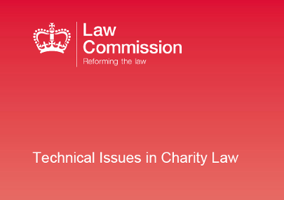It will cost the Charity Commission up to £800,000 to implement new legislation currently going through parliament, the regulator has said.
The estimate was included in the Charity Commission’s response to the government’s Charities Bill, which is currently being considered by a House of Lords committee.
The bill enjoys cross-party support and the Charity Commission said that it was “very supportive” of the government’s proposals.
The regulator also used its response to repeat warnings about the growing proportion of charities which reported holding zero or negative free reserves during the pandemic.
Commission welcomes long-term savings
The Charities Bill will introduce reforms based on the recommendations in the Law Commission, including giving trustees greater freedom to amend their governing documents and make financial decisions without involving the regulator.
In its response, the Charity Commission said that it estimates that the initial cost will be between £700,000 and £800,000.
The Commission said: “However, after a period of implementation, the changes should eventually free up some [of the Commission’s] time and resource, particularly in relation to amendments to governing documents and the use of permanent endowment.”
The extra cost would come mainly from the need to create more internal and external guidance.
The bill is estimated to make overall savings of around £2.8m a year.
Reserves warning
The response also warned that the charity sector’s “financial resilience has weakened” during the Covid-19 crisis.
The proportion of charities with an income of more than £500,000 that have no or negative free reserves tripled between April 2020 and July 2021, the Commission said, from 9% to 28%.
When Helen Stephenson, chief executive of the Charity Commission, first presented this data to parliament earlier this year, she added that auditors were also reporting more matters of material significance to the regulator.
Charity innovation
The Commission also praised charities and said: “Through our casework and engagement with charities, the [Charity Commission] has also seen examples of robust planning and clear board involvement, to manage charities through prolonged uncertainty.
“There is also evidence of innovation in the sector, of charities coming together to work in partnerships, and of significantly accelerated digital approaches to both fundraising and service delivery.”
Related news












